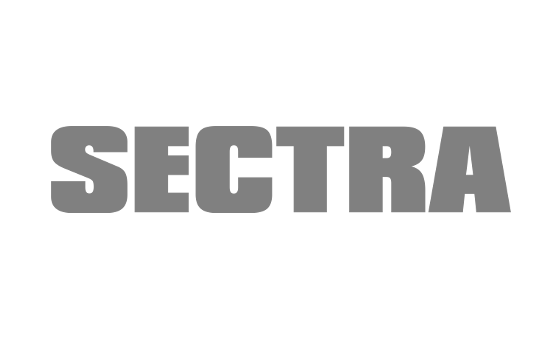 Genomics England has completed installation of an enterprise imaging system that will help to support a world-pioneering initiative for cancer research. The programme is linking whole genome sequencing, pathology and radiology data, in what has been described as the world’s largest multimodal cancer research platform.
Genomics England has completed installation of an enterprise imaging system that will help to support a world-pioneering initiative for cancer research. The programme is linking whole genome sequencing, pathology and radiology data, in what has been described as the world’s largest multimodal cancer research platform.
First announced in 2022 as a means to support new discoveries, Genomics England’s programme will help a wide range of researchers and scientists create a better understanding of cancer. It is hoped that this will lead to new treatments as well as supporting the development of cancer-targeting AI.
Genomics England has now deployed technology from medical imaging technology provider Sectra, that will play a central role in allowing the organisation to bring together underpinning data, so that researchers and developers from a wide variety of backgrounds can harness it in new ways.
In particular, the enterprise imaging system will allow Genomics England to incorporate NHS imaging data, whilst the Image Exchange Portal, a system used nationally in the NHS, will also allow it to transport images from participating NHS trusts.
This will mean diagnostic imaging data captured in the NHS, including radiology images such as x-rays, CT and MRI scans, and digital pathology images generated by NHS laboratories, can be linked with whole genome sequencing data from Genomics England.
To begin with 30 NHS trusts in England are providing data on solid tumours. This includes approximately 250,000 pathology images and 200,000 radiology scans, for 16,000 participants.
Once the radiology and pathology data in the system is matched with the genomics data, multi-modal data will be used by researchers to investigate and identify markers for cancer diagnostics and treatments.
Information will be kept highly secure with patient identifiable data removed for researchers outside of Genomics England, who will only have access to a Genomics England ID number, the age of the participant, and the name of the NHS site at which data was captured.
Dr Prabhu Arumugam, director of clinical data and imaging, and Caldicott Guardian for Genomics England, said: "This programme will push the boundaries of cancer research and how we work. It has the potential to transform clinical trials, change who can do research and development, and lead to the creation of new targeted treatments for cancer patients. The potential is vast.
"We will be able to understand mutations and when things go wrong in DNA, and importantly, whether that transpires into what clinicians see in medical imaging. We can also expose data in new ways to AI. All of that can help to facilitate new drug discoveries, and better inform which patients might benefit from particular treatments.
"Innovative working with Sectra is an important part of our initiative. The imaging system is already a very recognisable interface in NHS clinical settings, but we are using it in new ways. It will help us to harness imaging that we can then match to our genomic data, whilst de-identifying data to ensure confidentiality. The resulting multi-modal dataset will enable important research, break down traditional barriers, and support a safe and secure but accessible cloud-based research environment, that means many more people than bioinformaticians can harness genomic, pathology and radiology data."
Deployed in the Genomics England’s cloud environment, the new research platform will be easily accessible for users, through a secure, fast and reliable interface.
Cloud deployment will also provide the flexibility to scale the initiative as more users come on board, and as the programme potentially expands to support research for non-cancers in the future.
Sectra's enterprise imaging system is widely used in the NHS, where it supports healthcare professionals in diagnosing patient illness. The system installation was completed in February 2023, after a contract was awarded earlier in 2022.
Jane Rendall, UK and Ireland managing director for Sectra, said: "This is an inspirational initiative, that could help to change our understanding of cancers and other illnesses. We have been working with the NHS for decades in delivering digital maturity to diagnostic environments including radiology and pathology. This project makes greater use of that work, with exciting possibilities for research that could be immense. I eagerly look forward to seeing research emerge, and from that the potential for life-changing and life-saving treatments for patients."
About Genomics England
Genomics England is a global leader in advancing and delivering genomic medicine at scale, for all. Building on our delivery of the 100,000 Genomes Project, we are enabling the world's first national Whole Genome Sequencing service in the NHS Genomic Medicine Service, delivering the most advanced genomic healthcare today. We maximise the patient and participant benefit of this service by using the same trusted and proven infrastructure and expertise, and consent and governance framework, to support the development of the genomic medicine of tomorrow, together with the NHS, industry, and academia. All this focused on delivering our vision of a world in which everyone benefits from genomics.
About Sectra
With more than 30 years of innovation and approaching 2,000 installations worldwide, Sectra is a leading global provider of imaging IT solutions that support healthcare in achieving patient-centric care. Sectra offers an enterprise imaging solution that provides a unified strategy for all imaging needs while lowering operational costs. The scalable and modular solution, with a VNA at its core, allows healthcare providers to grow from ology to ology and from enterprise to enterprise. Visit Sectra's website to read more about Sectra and why it’s top-ranked in 'Best in KLAS'.